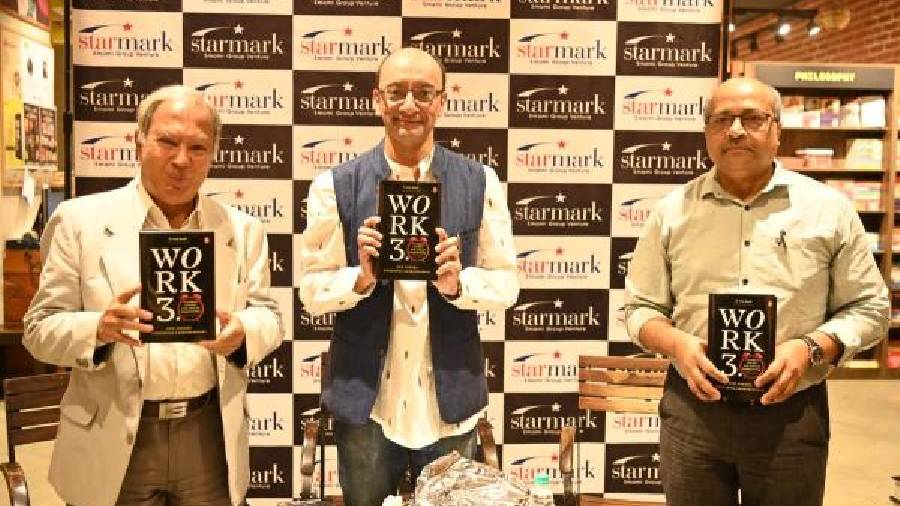A book that deals with the paradigm shift in the nature of work, worker and the workplace was launched in Kolkata on Friday.
Work 3.0 is co-authored by Avik Chanda, author, columnist and business advisor, and Siddhartha Bandyopadhyay, professor of economics at the University of Birmingham.
“What will the worker, workplace and work itself look like in the future? Work 3.0 tackles this and some of the other most pressing and complex questions of the present age, head-on. Avik Chanda and Siddhartha Bandyopadhyay employ rigorous research supplemented with industry reports, business case studies, expert interviews, anecdotes, their personal expertise and insights, to present a rich multi-disciplinary brew that spans economics, statistics, public policy, history, sociology, psychology, law, political science, literature and philosophy,” read a note from the publisher.
On Friday, at a bookstore in South City Mall, Chanda discussed the book with Tirthankar Roy, professor of economic history at the London School of Economics, and Krishnan Srinivasan, former Indian foreign secretary, author and columnist.
“The end of World War II changed the world order and everything needed a fresh start. It can be considered as ground zero. The time would be 1945 for the West and 1947 for us, when we became independent. That phase can be considered as Work 1.0. Similarly, the 1990-91 phase marked the beginning of the global IT and technology revolution. India opened its economy. We haven’t looked back since. You can call that Work 2.0. The new disruptive wave witnessed since 2020 is Work 3.0.
“The global economy seems to have come out of the clutches of Covid. The changing nature of work, worker and workplace offers both challenges and opportunities. How to overcome the challenges and make use of the opportunities are what this book deals with,” Chanda said.
“The authors’ focus is on India, but with universal relevance, embracing the ever-expanding nation-state, threats posed by global warming and other exogenous shocks. They have produced a visionary book, one the public would do well to heed,” said Srinivasan.
